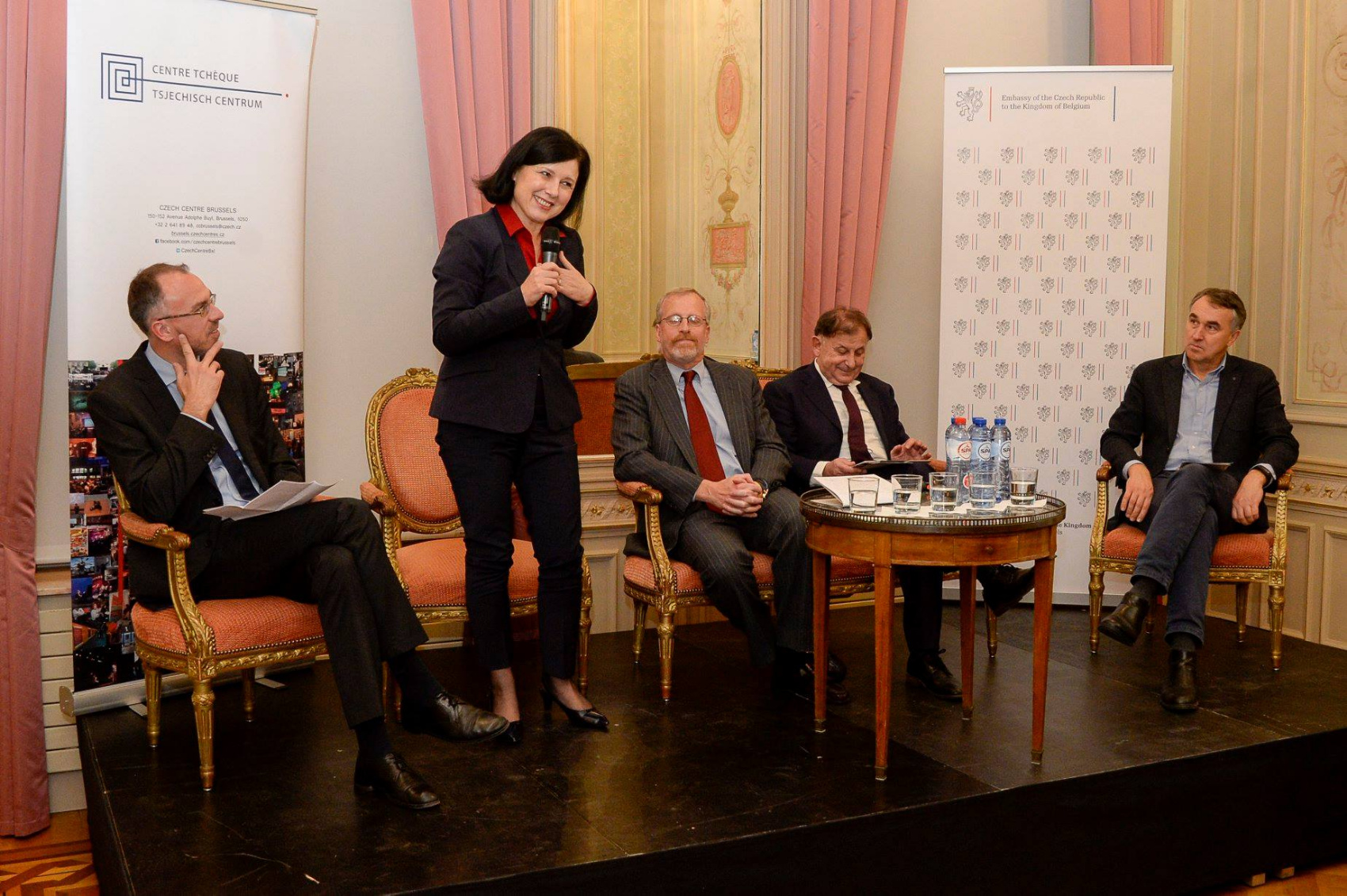The Vaclav Havel European Dialogues
Brussels, 27 November 2018
Strengthening Democracy in the EU Neighbourhood: Integration as an Effective Leverage?
“Everything seems to attest to the fact that we don’t need to be afraid to dream of the seemingly impossible if we want the seemingly impossible to become reality. Without dreaming of a better Europe we will never be able to build a better Europe.”
Václav Havel, Address at the Council of Europe, 10 May 1990
The Václav Havel European Dialogues is an international project that aims to initiate and stimulate discussion about issues determining the direction of contemporary Europe while referring to the European spiritual legacy of Václav Havel.
When and where
- Date: 27 November 2018
- Place: Prague House, Avenue Palmerston 16, Brussels
- Organizers: Vaclav Havel Library, Czech Centre, Prague House in Brussels, Embassy of the Czech Republic in the kingdom of Belgium, Permanent Representation of the Czech Republic to the EU
Program
Opening of the Conference
Pavel Svoboda, Member of European Parliament, EPP Jakub Dürr, Permanent Representative of the Czech Republic to the EU Jaroslav Kurfürst, Ambassador of the Czech Republic to the Kingdom of Belgium
Moderator of the Discussion: Michael Žantovský, Executive Director of the Václav Havel Library
First Panel: The EU’s Transformative Power: Is the Dream Fading Away? Věra Jourová / Eric Maurice / Petras Auštrevičius / David Kramer
Promoting freedom, democracy, pluralism and the rule of law are the guiding principles for EU’s external action. The attractiveness of the EU’s political culture played a crucial role in the integration processes of the last decades. However, 70 years after the proclamation of the Universal Declaration of Human Rights, the fundamental values and policies of the EU are increasingly called into question, even within the Union. The appeal of populists grows with mounting public discontent in many countries. Does the EU still inspire its neighbours? Does the US share the same vision for the Western Balkans and the EU’s Eastern neighbourhood? Can Europeans and Americans convince others about their agenda?
Second Panel: The Western Balkans on the Road: Will the EU Succeed with its Neighbours? Jerzy Pomianowski / Šimon Pánek / Nenad Pejić
In spite of some setbacks in the face of liberal democracy that did not sidestep the EU, the fundamental values of the EU remain unchanged. But are they still seen as an inspiration by EU candidates and potential candidates in the Western Balkans, or is it rather EU’s standard of living and financial support that attracts them? Are the EU’s instruments effectively contributing to strengthening democracy, human rights and the rule of law in its neighbourhood? Is the EU engagement efficient in the face of disinformation campaigns and the involvement of third actors? How could the EU best help promote civil society and media freedom in neighbouring countries?




